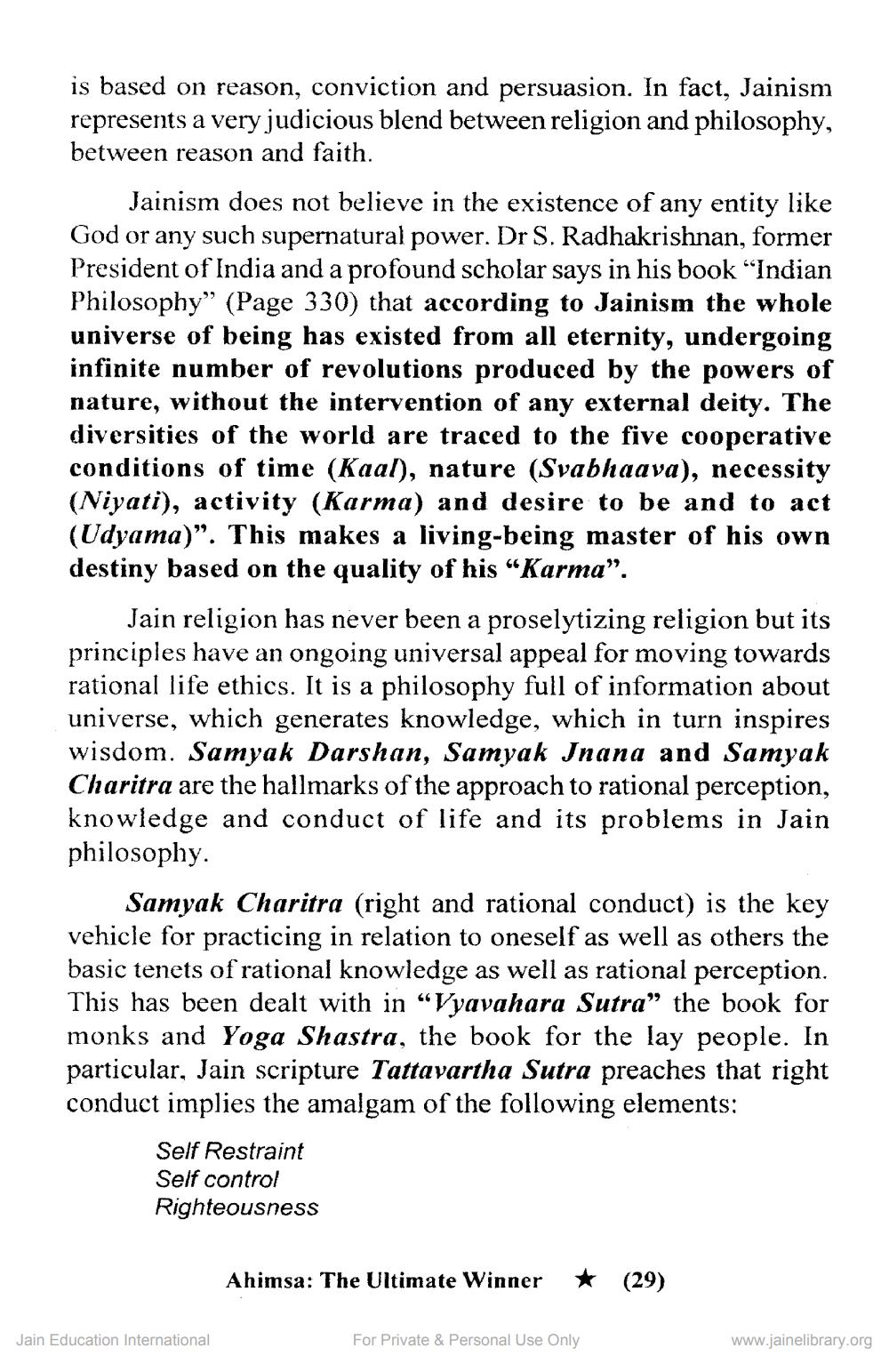________________
is based on reason, conviction and persuasion. In fact, Jainism represents a very judicious blend between religion and philosophy, between reason and faith.
Jainism does not believe in the existence of any entity like God or any such supernatural power. Dr S. Radhakrishnan, former President of India and a profound scholar says in his book “Indian Philosophy" (Page 330) that according to Jainism the whole universe of being has existed from all eternity, undergoing infinite number of revolutions produced by the powers of nature, without the intervention of any external deity. The diversities of the world are traced to the five cooperative conditions of time (Kaal), nature (Svabhaava), necessity (Niyati), activity (Karma) and desire to be and to act (Udyama)”. This makes a living-being master of his own destiny based on the quality of his “Karma".
Jain religion has never been a proselytizing religion but its principles have an ongoing universal appeal for moving towards rational life ethics. It is a philosophy full of information about universe, which generates knowledge, which in turn inspires wisdom. Samyak Darshan, Samyak Jnana and Samyak Charitra are the hallmarks of the approach to rational perception, knowledge and conduct of life and its problems in Jain philosophy.
Samyak Charitra (right and rational conduct) is the key vehicle for practicing in relation to oneself as well as others the basic tenets of rational knowledge as well as rational perception.
This has been dealt with in “Vyavahara Sutra” the book for monks and Yoga Shastra, the book for the lay people. In particular, Jain scripture Tattavartha Sutra preaches that right conduct implies the amalgam of the following elements:
Self Restraint Self control Righteousness
Ahimsa: The Ultimate Winner
*
(29)
Jain Education International
For Private & Personal Use Only
www.jainelibrary.org




